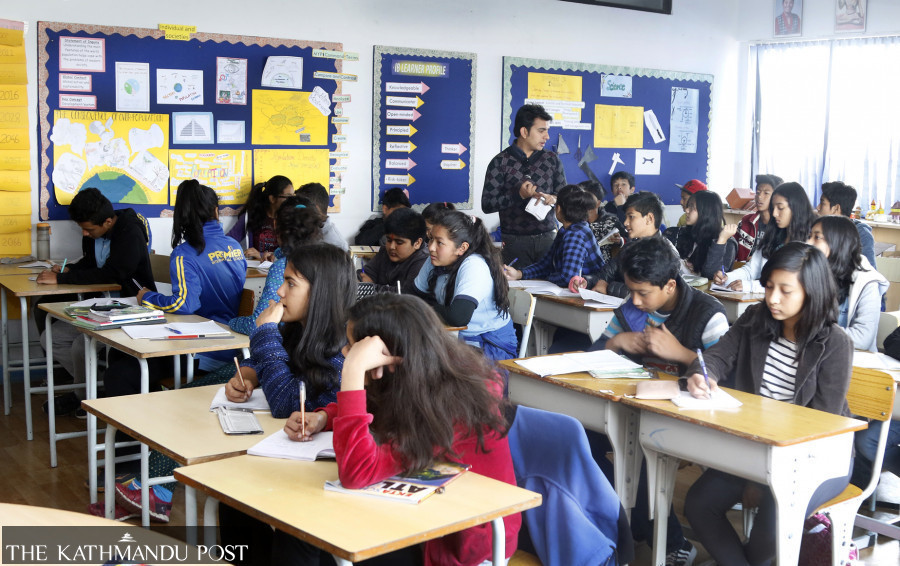Editorial
The lockdown aftereffect
The impact of virtual learning and its repercussions on pupils are only now emerging.
The lockdown provided the less explored opportunity of remote working and virtual classes. Confined to the four walls of our houses and sharing space with other household members wasn’t pleasant to start with. But gradually, with time, people bought into the idea of remote working. The avoidance of travel chaos, which often resulted in people being exhausted before they arrived at their workplace, was celebrated with a sigh of relief. But the upending of our habitual pre-pandemic behaviour has had far-reaching effects on areas that are conveniently overlooked—the impact of virtual learning and its repercussions on pupils are only now emerging.
While the adults celebrate their newfound love of remote working, the students undoubtedly have had to bear the brunt of the change in the way lessons were imparted. There have been numerous cases of pupils across Nepal who are now seen to be underperforming in the classroom. Students once considered gifted have lost their edge to perform satisfactorily in their exams over the past two years. If exams are any reliable indicator of a student’s abilities, they have indeed shown a slide in their ability to achieve the requisite grades.
A Child and Family Tracker Survey conducted by UNICEF in April shows that 50 percent of guardians reported a decline in the academic performance of their wards. The finger overwhelmingly points towards the frequent disruption of classes brought on by the lockdown. The switch from in-person classes to online classes has had a devastating effect on the cognitive growth of the pupils. In the pre-pandemic situation, if the distraction for students revolved around family, television and the copious use of mobile phones, the pandemic brought an unavoidable problem of being glued to countless electronic devices under the pretext of online classes.
The downside of being glued to the electronic devices and the range of distraction these devices offered the students for long stretches at a time were obvious but sadly unavoidable. Despite the forewarning from experts, there was not much that could be done to improve the situation. With Covid-19 raging the world over, there was no credible substitute for online classes. There may be space to argue the point of parents assisting the children, but one could not reasonably expect a parent to become an expert at teaching with the same level of skill and sophistication as a trained teacher.
Most students in Nepal didn’t have access to a virtual learning platform at all. In stark contrast to the more developed nations, only one-third of the students in Nepal could access a virtual learning platform. With schools closed entirely for over a year, students without access to virtual learning platforms have fallen behind their counterparts. Despite this, the study by UNICEF shows that no remedial measures had been taken to make up for this loss. It is easy to debate the pros and cons of online classes or in-person; the reality paints an entirely different picture, where access to equal opportunity is simply political rhetoric.




 10.54°C Kathmandu
10.54°C Kathmandu














